Environment
-
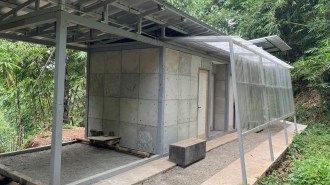 Environment
EnvironmentThis house was built partly from recycled diapers
Disposable diapers can replace nearly a third of the materials used in load-bearing structures, offering a potential path to more affordable housing.
-
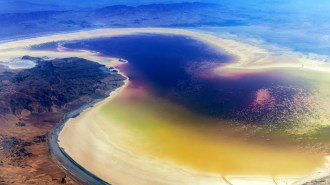 Environment
EnvironmentMore than half of the world’s largest lakes are drying up
Satellite data from 1992 to 2020 reveal that 53 percent of the world’s largest freshwater bodies shrank during that period while only 24 percent grew.
By Nikk Ogasa -
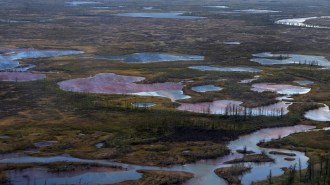 Climate
ClimateThawing permafrost may unleash industrial pollution across the Arctic
As the frozen ground warms due to climate change, industrial pollutants could flow free from thousands of sites across the Arctic.
By Nikk Ogasa -
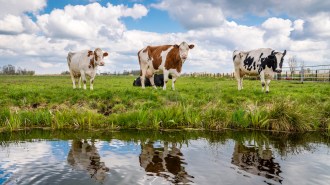 Climate
ClimateMethane may not warm the Earth quite as much as previously thought
Methane absorbs both longwave and shortwave radiation, with competing effects on climate, a study finds. The gas remains a potent warmer of the planet.
By Douglas Fox -
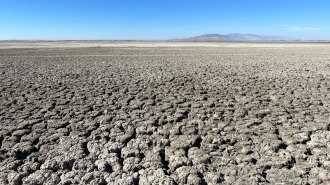 Earth
EarthThe Great Salt Lake is shrinking. What can we do to stop it?
A dropping lake level affects agriculture, public health and the environment — but water conservation can halt the decline.
-
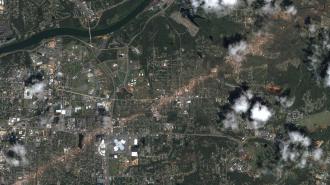 Environment
EnvironmentSatellite imagery reveals ‘hidden’ tornado tracks
Twisters that churn over barren landscapes leave scars that are invisible to human eyes but are detectable with infrared light.
-
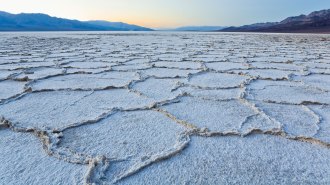 Math
MathHere’s why the geometric patterns in salt flats worldwide look so similar
New research suggests the shared geometry of salt flats from Death Valley to Iran comes from fluid flows underground.
-
 Health & Medicine
Health & MedicineMicroplastics are in our bodies. Here’s why we don’t know the health risks
Researchers are racing to try to understand how much humans are exposed and what levels are toxic.
-
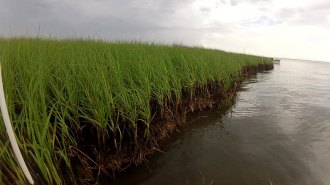 Environment
EnvironmentThe Deepwater Horizon oil spill ruined long-term shore stability
For at least eight years, the oil disaster continued to kill soil-retaining marsh plants along the Louisiana coast, accelerating shoreline loss.
-
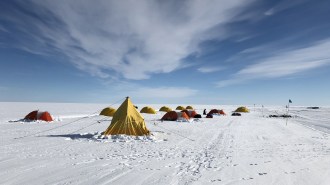 Climate
ClimateMany Antarctic glaciers are hemorrhaging ice. This one is healing its cracks
Scientists have explored the recesses of an Antarctic glacier that is currently stable, helping improve predictions of the continent’s fate.
By Douglas Fox -
 Environment
EnvironmentAir pollution made an impression on Monet and other 19th century painters
The impressionist painting style can be partly explained by the reality of rising air pollution from the industrial revolution, an analysis finds.
By Bas den Hond -
 Climate
ClimateGreta Thunberg’s new book urges the world to take climate action now
Greta Thunberg's ‘The Climate Book’ covers the basic science of climate change, the history of denialism and inaction, environmental justice and solutions.
By Erin Wayman